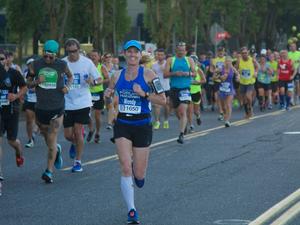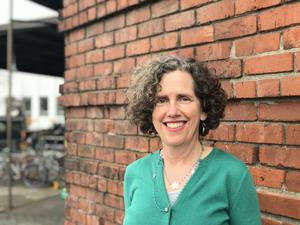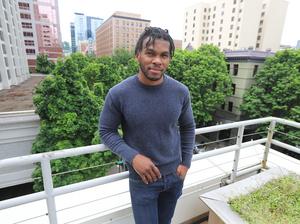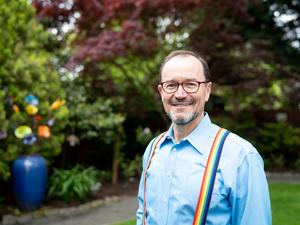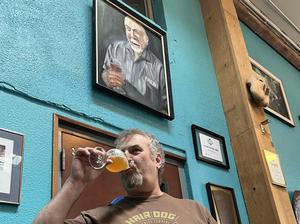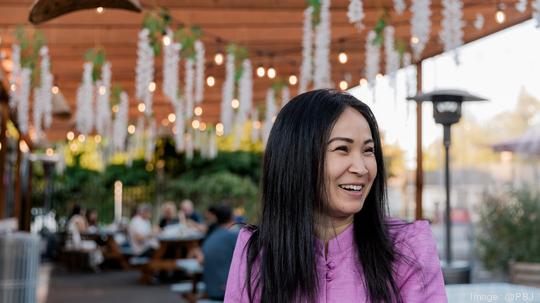
There is a saying in Lao: “This is my debt to community.”
It loses a bit of the heartfelt nature of the words when translated into English, said Toc-Soneoulay-Gillespie. It’s not a debt like something owed out of a scarcity relationship, but a debt rooted in love. And it’s that which drives Soneoulay-Gillespie's work.
Earlier this year she was named director of the newly created Governor’s office of Immigrant and Refugee Advancement. Soneoulay-Gillespie brings lived experience to this role as well as more than 20 years of working in social justice advocacy.
She was most recently director of community health for Health Share of Oregon. She is setting up the office and building out the relationships needed to do the work of connecting state resources to those who need them.
It’s a role of translator she has had all her life. First, as a child interpreting for her parents who were navigating a new country and language. And now, between technical policy and jargon English and English of the everyday.
“I started off at nine years old as an interpreter between English and Lao, my mother tongue. I didn’t realize that I was going to be an interpreter in English, the language that I continue to learn every day,” she said.
Your family came to the U.S. when you were 4. How did you end up in Alaska on Kodiak Island? I think knowing this part helps to understand why I’m even in this work, because so much of my lived experience informs what I’m doing now. We lived in Fresno California for 10 years and we survived California.
What I mean by that is we lived on public assistance, in the projects, around violence, drugs, gangs and my parents were like, there is no way we are gonna be able to raise six children here. We heard from family and friends there’s more opportunity in Alaska, not just through education but through employment.
So my parents put six kids in the back of an F150 and drove us through the (Alaska-Canadian Highway). And that was the best thing that every happened to my family. I probably would not have survived (without that move), I probably would have no degree. Who knows what would have happened.
What do think was different between Fresno and Kodiak? When we lived in Fresno, we were around other immigrants and refugees. I was one of thousands of other refugees. We got to Alaska and I had teachers who invested in me. Who talked to me about college, talked to my siblings about education. You have people who see something in you.
And, the other candid part about this is, I didn’t understand generational wealth or even knew that existed. I had (white) friends on Kodiak whose family paid for their tuition because they saved money, they owned canneries or they worked in the oil industry —that exposure to life outside of poverty. When I grew up in Fresno I didn’t know that was poverty. That was just life. Then I saw different things in Alaska.
You have described your work as being a bridge between refugee communities and the different state agencies that have resources. How does your experience inform this idea of being a bridge? We throw around that word a lot. Bridge builder. Or, connector. I don’t think we often take the time to think about what that actually entails. I can give an example of when I went to CareOregon and made the big leap to health care, the payer side.
I learned things in the first month about Medicaid — how robust it is. But, they were using a different language (than the communities that needed the help). I took that information back out to the community or community-based organizations and said, "did you know Medicaid covers behavioral health, physical health and oral health?" I learned how to access that system and how complicated it is. I created a slide deck that just had images and used the refugee and immigrant lens to create it. I bring it to the community and say, “This is how you navigate the system on health care.”
Our readers are business owners, executives and people who might have means to help. What would you want them to understand about our neighbors who have come here and are starting over? Let me give you an example, and I’m going to name drop here. Scott Youngblood is the general manager of Hilton. They are one of the hotels that are housing our families from Afghanistan. This man has been able to rally his colleagues in the hospitality industry. Through his relationships and through his own experience he has been able to use the language that the hospitality industry understands to bring them closer. We need more people like that. One of the ways I’ve done that is welcome folks to join us at the airport to welcome families who are coming from all over the world.
Toc Soneoulay-Gillespie
Title: Director of the Office of Immigrant and Refugee Advancement in the office of Gov. Kate Brown
Hometown: Born in a refugee camp in Soon Ubon Thailand. Fresno, California and then 10 years in Kodiak Island Alaska
Education: Bachelor of science in sociology and anthropology, Eastern Oregon University; Master’s of social work, University of Alaska, Anchorage
What are you currently reading: “Atlas of the Heart,” Brené Brown
Most played artist on your playlist: Anthony Hamilton
Favorite Portland restaurant: Khao Niew in the Cully neighborhood
